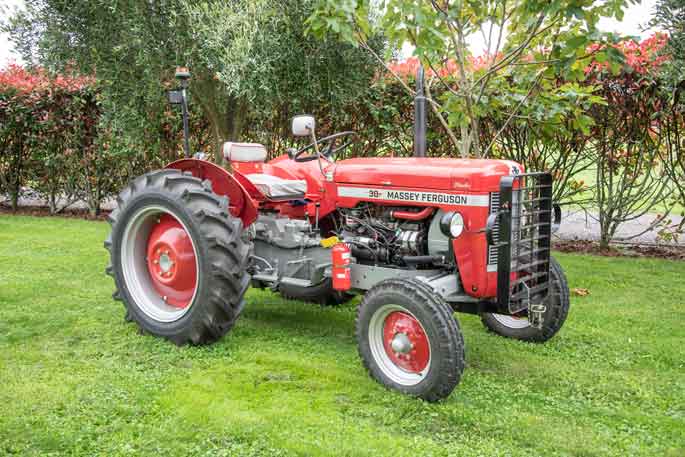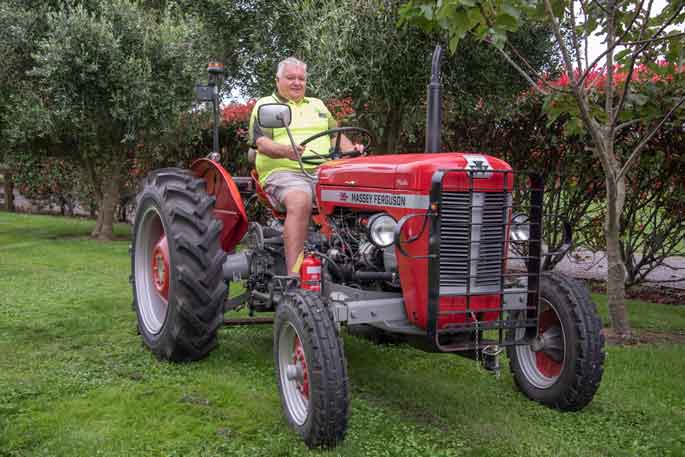Ken Sanders has nostalgic memories of growing up on a dairy farm in Te Poi.
He remembers going for rides on his father’s tractor and being allowed to harrow his first paddock alone at eight years old. He can even picture the exact paddock to this day.
He became a dairy farmer himself.
“I was a bit of a Nuffield man and my first tractor was a Leyland Nuffield, but I’ve had other brands too,” says Ken.
Ken sold his farm and bought a Katikati orchard in 1992 to grow kiwifruit.
The tractor collecting was kickstarted when he retired and wanted a tractor for trekking with the Tauranga Vintage Machinery Club.
The tractor he bought from an orchard in Te Puke in 2019 through TradeMe was an unusual find. The Massey Ferguson 30 was manufactured in France, somewhere between 1962 and 1964.
“While it’s Massey Ferguson design and has their hydraulics system, it’s quite different and Renault have had a say in it. It would have come over new as a lighter weight tractor for tasks such as mowing school grounds.”
The diesel four-cylinder Perkins A4.107 engine is 30HP and has eight forward and two reverse gears.
“The top two gears were synchromesh which was a pretty modern development as far as a tractor was concerned.”
The 30 is very rare as they were only made for two to three years.”
Ken says that once they brought out the Massey Ferguson 35 in the United Kingdom, it was superior to the 30 and sales dropped off.
“I’m surprised that any of the 30s ended up in New Zealand in the first place.”
While the tractor is rare, its Perkins engine isn’t rare as it was used in other areas such as the marine industry.
It does have different aspects though which enthusiasts, especially Massey Ferguson ones, spot straight away.
“It has a distinctive edged chassis which the engine sits on and a different braking system.”

Ken uses the tractor for trekking and admits it’s just for show. A mechanic did the paintwork and engine restoration.
He is drawn to rare tractors as his next project is a late 1960s Muir-Hill 101.
There is little information about them and while in the United Kingdom, Ken went to York, the last place that Muir-Hill had a factory, but he didn’t find out much.
“It’s not working now, but I will certainly try to get it running.”



0 comments
Leave a Comment
You must be logged in to make a comment.